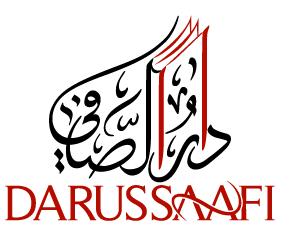Questioner: My son Umar asks about whistling?
Shaikh: What is that?
Questioner: Is whistling haram?
Shaikh: Who asks the question?
Questioner: My son Umar
Shaikh: Your son mashallah
Questioner: Since his father is ignorant of the answer, therefore it becomes a question from his father
Shaikh: In it is blessings for the father and son
Questioner: [Whistling] at night, is there any difference between night and day?
Shaikh: What is that? I do not understand this following the night and day?
Questioner: Because the laymen say that whistling at night…
Shaikh: With us in our land in Albania [is the idea] that whistling at night gathers the devils. Do you also have this?
Questioner: We have the very same thing
Shaikh: The very same thing? Alright
Questioner: It is either from us [the Arab] or from you [the Non-Arabs]
Shaikh: By Allah, it is possible from us considering we are Non-Arabs and they are Arabs. That which we see in this issue, quoting the statement of the Exalted, is:
وما كان صلاتهم عند البيت إلا مكاء وتصدية
Their Salat (prayer) at the House (of Allah, i.e. the Ka’bah at Makkah) was nothing but whistling and clapping of hands. Therefore taste the punishment because you used to disbelieve [8:35]
(مكاء) that is: whistling and (تصدية) that is: clapping. So like that, what many of the people of the Muslims do today in their lectures and when they hear something that amazes them from the speech of a speaker or a specific point from his speech, they clap out of amazement…
Questioner: Specifically if the name of the President of the country is mentioned
Shaikh: … No doubt that this is not allowed from two angles. The first angle: that this is an act of worship of the disbelievers:
وما كان صلاتهم عند البيت إلا مكاء وتصدية
Their Salat (prayer) at the House (of Allah, i.e. the Ka’bah at Makkah) was nothing but whistling and clapping of hands. Therefore taste the punishment because you used to disbelieve [8:35]
The second angle is that this clapping until now is from the customs of the disbelievers. It is not allowed for the Muslims to blind-follow them in this custom due to the first general principle:
من تشبه بقوم فهو منهم
Whoever imitates a people, then he is from them
[Saheeh Sunan Abi Dawood no. 4031]
And the second:
فخالفوهم
So oppose them [i.e. the disbelievers]
As comes in many Ahaadith and before that, in this [very] verse. So if this is the ruling for clapping, then it is the same answer for (مكاء) which is whistling. So like that, it is not necessary to turn the gaze away from custom of some youth and some teenagers, which is that they whistle. This is because this whistling is a custom of the foreigners and especially since the whistling is sometimes to defame some of the young girls or some of the women. Yes.
Questioner: Jazakallahu Khairan”
[Silsilatul-Huda wan-Nur no. 954]
Translated by
Faisal Ibn Abdul Qaadir Ibn Hassan
Abu Sulaymaan

